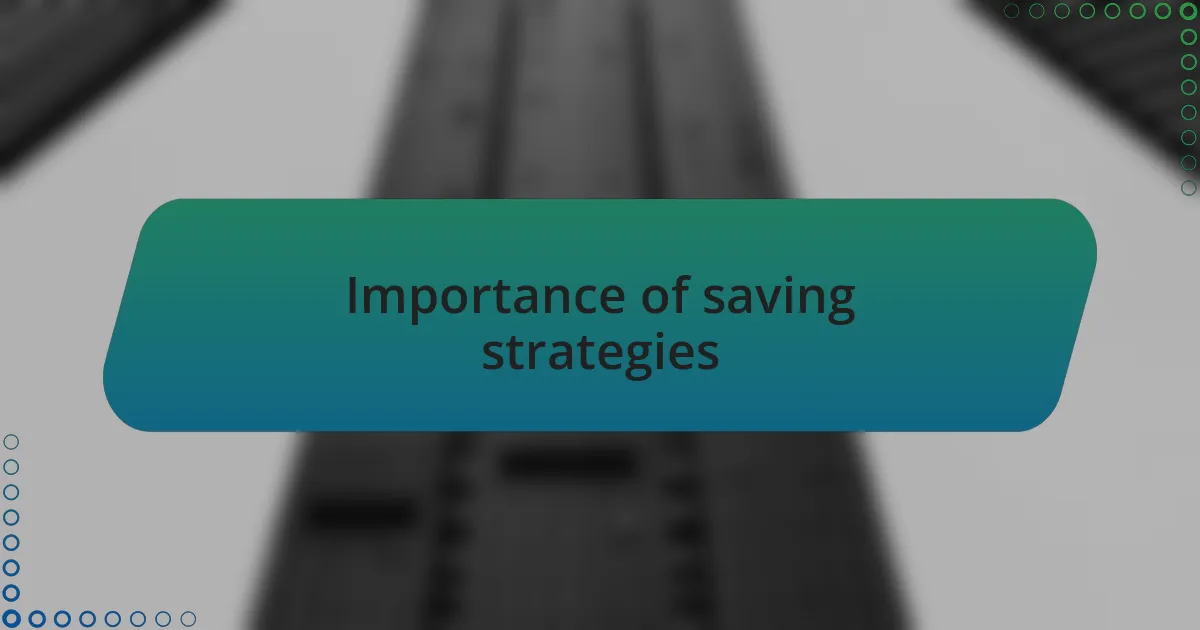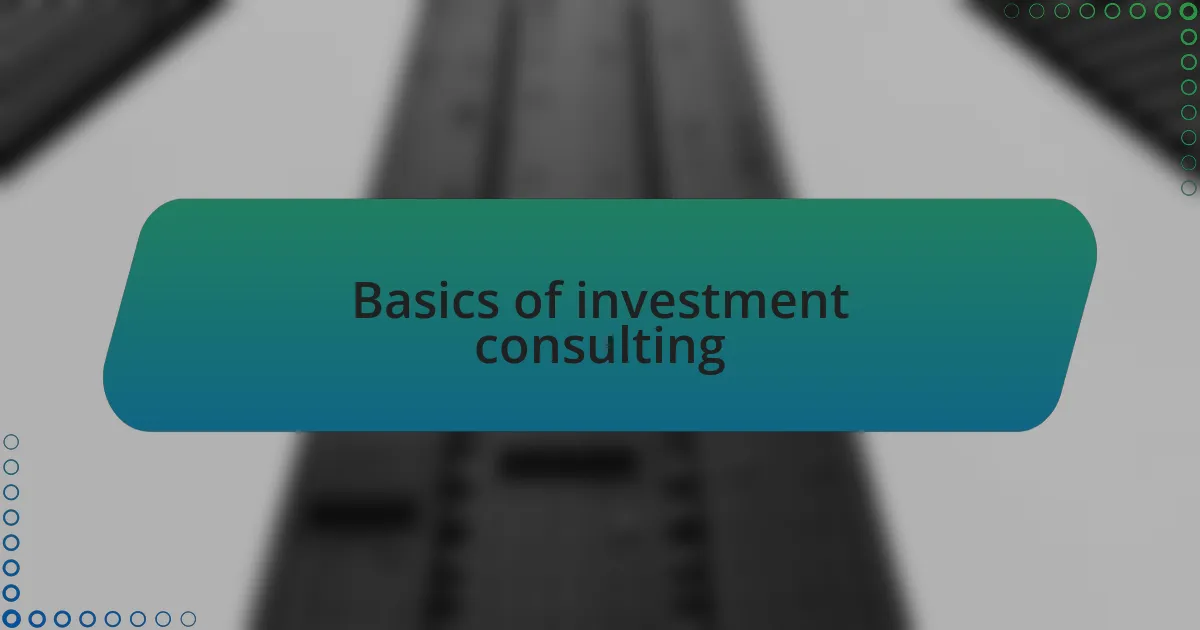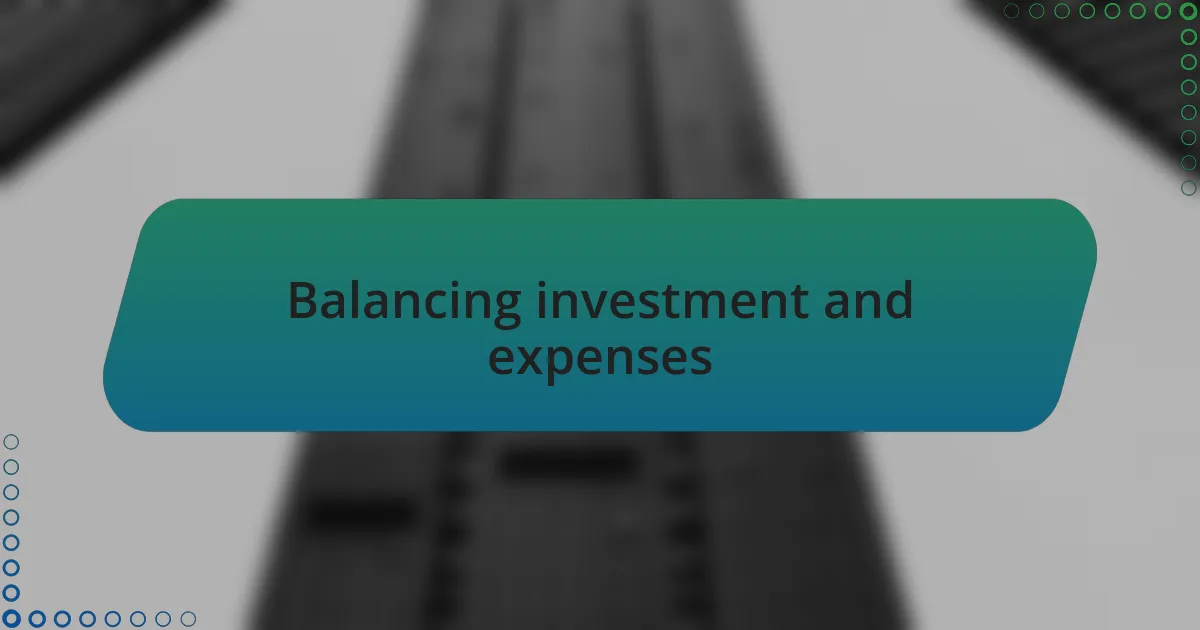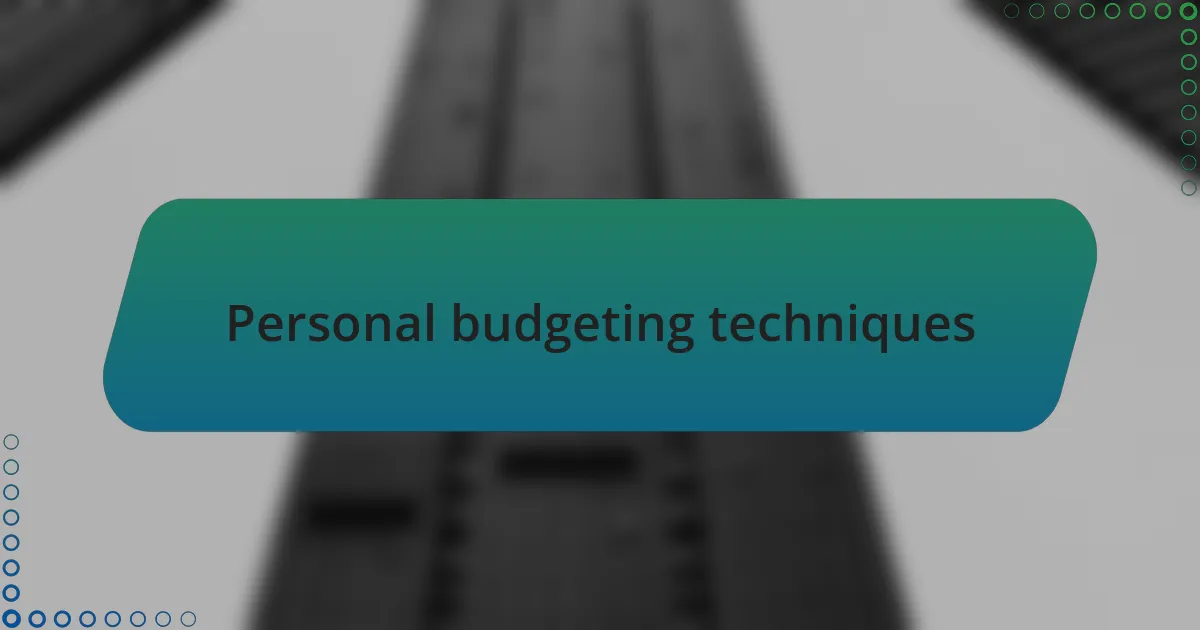Key takeaways:
- Balancing saving and spending is vital for financial freedom; conscious spending can enhance well-being through meaningful experiences.
- Implementing effective saving strategies, such as automation and setting specific goals, can significantly improve financial health and reduce anxiety.
- Investment consulting includes understanding personal financial goals, risk tolerance, and the importance of asset diversification to ensure balanced portfolios.
- Daily spending habits influence investment potential; tracking expenses and making mindful choices can maximize contributions to investments.
Understanding savings and spending
When I reflect on my own financial journey, I often realize how crucial it has been to strike a balance between saving and spending. It’s interesting how many people see savings as a chore rather than a strategic way to invest in their future. Have you ever considered how every dollar you save is a step toward financial freedom?
Spending, on the other hand, isn’t inherently bad; it’s about making conscious choices that align with your values and goals. Once, I splurged on a well-deserved vacation that revived my spirit and motivation; it reminded me that experiences often bring more joy than material goods. What does spending mean to you—an escape or a necessary investment in your well-being?
Understanding your unique financial landscape can transform your approach to both savings and spending. I’ve learned that tracking my expenses reveals patterns I hadn’t noticed before, empowering me to fine-tune my budgeting. Have you ever thought about how small changes in spending habits can lead to significant savings over time?

Importance of saving strategies
Effective saving strategies play an essential role in securing financial well-being. I remember setting aside a small percentage of my income every month, and how that gradual accumulation turned into a safety net during unexpected situations. It’s incredible how having savings can ease anxiety and provide a sense of stability—have you ever experienced that relief when you have funds to fall back on?
In my experience, the approach you take to saving can greatly influence how you view your overall financial health. For instance, I found that automating my savings made it almost effortless; it felt like a weight was lifted off my shoulders. Have you considered how automation could change your saving game? By setting up automatic transfers, I noticed I was less tempted to dip into my savings, ultimately developing a healthier relationship with money.
Furthermore, saving isn’t just about the numbers—it’s about creating opportunities for the future. I vividly recall saving for a significant investment, which not only opened new doors for me but also instilled a sense of purpose in my financial journey. How can a well-structured savings strategy empower you to pursue your dreams? I believe that every time we save, we’re one step closer to financial freedom and personal fulfillment, reinforcing the importance of thoughtful and intentional saving strategies.

Basics of investment consulting
Investment consulting begins with understanding your financial goals. I clearly remember my first consultation; it felt like embarking on a journey. The advisor took the time to help me outline my objectives, emphasizing that each investment should align with my long-term aspirations. Have you ever considered how clarity in your goals can shape your investment choices?
In addition, investment consulting involves assessing risk tolerance and market knowledge. I realized that what I was comfortable with may not align with a more aggressive investment strategy. It’s crucial to measure how much risk you’re willing to take because this shapes the types of investments suitable for you. How would you assess your own willingness to embrace market fluctuations?
Moreover, effective consultants often provide a nuanced perspective on asset allocation. When I learned about diversifying my investments across different asset classes, it was an eye-opener. Balancing stocks, bonds, and other assets not only mitigates risk but also enhances the potential for returns. What steps will you take to ensure your investment portfolio is balanced? A well-rounded approach can provide both security and growth in your investment journey.

Balancing investment and expenses
Balancing investments and expenses is a delicate dance that requires constant attention. I vividly recall the moment I realized that every dollar spent could impact my future wealth. I had to shift my mindset—seeing expenses not just as costs, but as choices that either supported my investment goals or detracted from them. Have you ever thought about how your daily spending habits influence your investment potential?
As I navigated through my financial journey, I discovered that tracking my expenses made a significant difference. This practice opened my eyes to areas where I could cut back, allowing me to funnel more money into investments. I remember one month, after reviewing my spending, I decided to forgo a few dining out experiences. That seemingly small decision led to a substantial boost in my investment contributions. What sacrifices could you make today that would benefit your financial future tomorrow?
Ultimately, finding that balance between spending and investing requires ongoing reflection and adjustment. I learned that it wasn’t just about saving more; it was about being intentional with each expenditure while strategically allocating funds toward growth opportunities. This principle reshaped my approach to every purchase. How do you ensure that your spending aligns with your aspirations for wealth creation?

Personal budgeting techniques
Establishing a budget is one of the most effective personal budgeting techniques I’ve found. After experimenting with various methods, I settled on the envelope system for my discretionary spending. By allocating specific amounts to different categories—like entertainment or groceries—I’ve developed a clearer view of my finances. Have you ever tried putting cash into envelopes for your weekly expenses? It’s surprising how physical cash can change your spending habits, making you more mindful of each purchase.
I also find that setting short-term savings goals within my budget makes a significant impact. For example, I once set a goal to save for a mini-vacation. Instead of automatically spending on a weekend outing, I redirected that money into a savings account. It transformed my perspective; prioritizing my goal made delayed gratification feel so rewarding. What small goals can you set to motivate yourself to save while still enjoying life?
Another technique that has worked wonders for me is using budgeting apps to keep track of my finances. I was initially skeptical but discovered that tracking my spending in real-time demonstrated clear patterns. I was shocked to learn how much I spent on coffee alone! By identifying these small expenses, I could make adjustments that bolstered my savings. Have you ever taken such a close look at where your money goes? It can be eye-opening and empowering.

Evaluating investment opportunities
Evaluating investment opportunities is a nuanced process that requires a balance of instinct and analytical rigor. I often begin by examining the fundamentals—what is the company’s financial health? For instance, I once invested in a tech startup after noticing its impressive revenue growth and solid leadership. This instinct, paired with diligent research, gave me confidence that I was making a sound decision.
Another critical aspect I consider is market trends. Understanding the broader economic environment can help identify sectors poised for growth. I remember feeling overwhelmed when I first started analyzing these trends, but now I thrive on that excitement. It leads me to ask, what emerging markets are catching your attention right now?
Lastly, I assess the potential risks associated with each investment opportunity. Risk is part of any investment, and knowing how to mitigate those risks is essential. One lesson I learned the hard way was not to ignore red flags during my evaluations. I let my enthusiasm cloud my judgment once, only to realize later that thorough due diligence could have saved me from a disappointing outcome. Have you had similar experiences that shaped your approach to evaluating investments?







